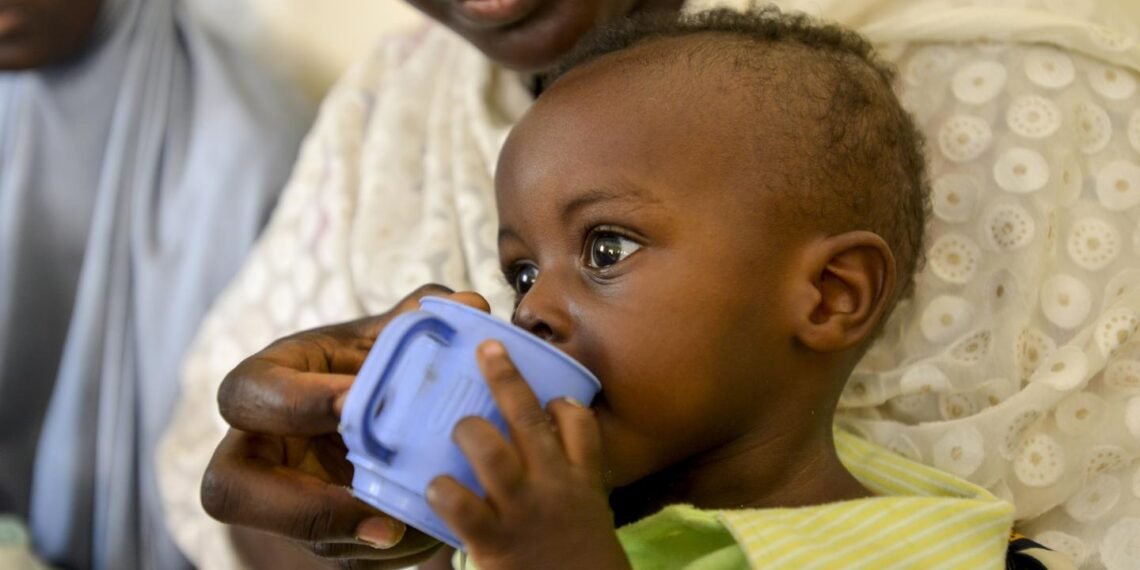The Co-founder of the Cope and Live Mental Health Awareness Foundation (CALMHAF), Mrs. Uzoamaka Nwachukwu, has warned of the dangers of poor nutrition in children’s mental development and stability.
Nwachukwu, who is a trained child psychologist, gave the warning while speaking on World Food Day (on October 16) and the growing incidences of malnutrition among children in Nigeria on Thursday in Enugu.
She noted that there were links between quality nutrition and children’s mental health, brain development and function; adding that the brain requires essential omega-3 fatty acids, vitamins, minerals, and antioxidants to develop and function properly.
According to her, diets high in sugar and processed foods are linked to increased risks of anxiety and depression in children as well as cause blood sugar spikes and crashes, which can affect mood stability.
Nwachukwu, a mental health advocate, said that “nutrients like magnesium (found in leafy greens and nuts) and vitamin D (from sunlight or fortified foods) support serotonin production, a neuro-transmitter that stabilises mood.
“Studies show that children with diets high in fruits, vegetables, and whole grains tend to have better academic performance and fewer behavioral issues compared to those consuming high-sugar, high-fat diets.
“For example, a 2019 study found that children with poor diets were more likely to exhibit hyperactivity and inattention, symptoms often associated with Attention -Deficit /Hyperactivity Disorder (ADHD).”
She called on mothers and caregivers to replace costly foreign foods with cheaper and available Nigerian alternatives to ensure that their children get essential mental health sustaining nutrients.
“Nigeria’s markets offer household foods that deliver Omega-3s, iron, B vitamins, and more at a fraction of imported costs (often between ₦100 and N500 per family serving).
“Swap expensive salmon for dried or smoked mackerel (Titus) or sardines, and almond/walnuts for groundnuts or egusi seeds.
“Replace lean meats with affordable beans (“akidi” or brown beans), dried fish, and “ugu” (pumpkin) leaves.
“These cover daily needs; pair with vitamin C-rich fruits for better absorption. Try bean porridge with “ugu” or fish stews,” she said.
Read also:
- World Food Day: BATN Foundation reaffirms commitment to food security at Lagos Farm Fair
- World Food Day: Keeping Everyone Safe From Trans Fats
- World Pulses Day: How tiny superfoods can save planet, end hunger
For Vitamin B for energy and mood stability; she advocated use of leafy greens like “ugu” or spinach (green), plus fermented ogi from corn or millet, boost serotonin precursors. Blend “ugu” into “ogi” for a nutrient-packed breakfast.
For Vitamin D for serotonin and mood support; Nwachukwu urged families to leverage Nigeria’s abundant sunlight (15-20 minutes daily) alongside small portions of dried fish or eggs; while outdoor playtime doubles as free therapy.”
The child mental expert noted that a balanced and nutritious diet provides the nutrients needed for optimal brain function, while poor nutrition can contribute to mental health challenges like anxiety, depression, and attention issues.
She, however, noted that in a world where good nutrition is key to children’s mental well-being; many families in Nigeria face steep challenges on getting a balanced diet on their dining tables.
“Rising food prices, food insecurity, and limited access to diverse foods make it hard to follow expert advice on preventing anxiety, depression, and ADHD through nutritious diet.
“Yet, with Nigeria’s rich array of local staples like pumpkin leaves, beans, and fermented pap, low-income households can still nourish their children’s brains affordably,” she added.






